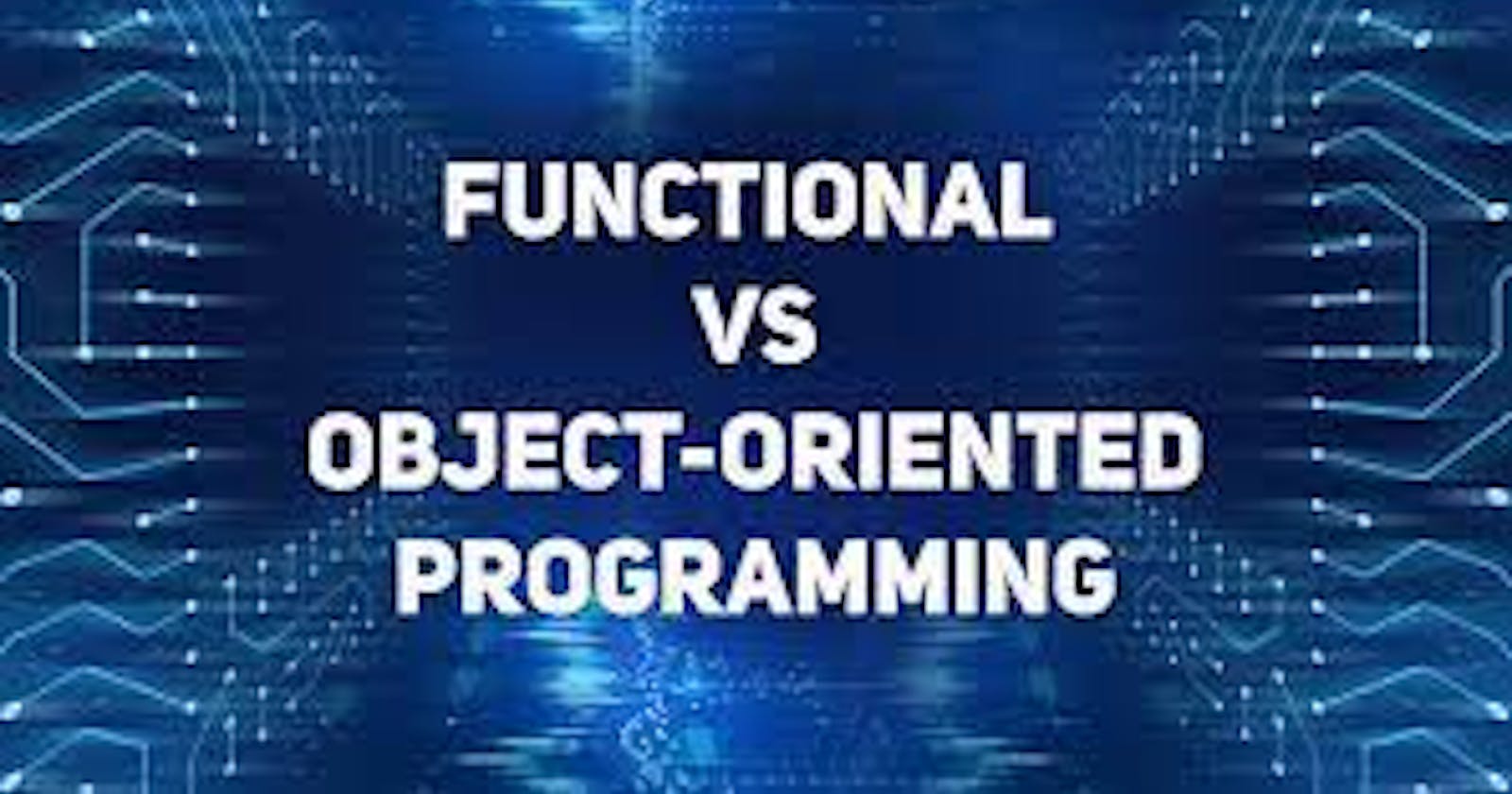The difference between functional and object orientated programming.
An introduction to programming languages.
There are numerous types and styles of programming languages, each with its own set of advantages and disadvantages. Functional and object-oriented programming are two of the most popular programming paradigms. Today, we'll discuss the key differences between the two programming paradigms and how each can be used to create effective software solutions.
What is Functional Programming.
A programming paradigm known as "functional programming" focuses on combining smaller functions to create larger, more complicated functions. Functional programming is based on the idea that a program is made up of functions that can be coupled and evaluated to achieve a result, thereby eliminating the need for state and mutable data. Another important component of functional programming is declarative code, which specifies what the program should do rather than how it should do it.
What is Object-Oriented Programming.
Object-oriented programming (OOP), a programming paradigm, seeks to create programs by constructing objects that communicate with one another. The foundation of OOP is the idea that an object should contain both data and methods for manipulating that data. Another thing that OOP promotes is reusing existing code, which is the practice of writing code that can be used in other contexts.
How the two compare in a JavaScript example.
Here's a simple "Game" class in JavaScript that shows some of the key differences between functional and object-oriented programming:
Object-Oriented Programming example:
class Game {
// A class serves as an object creation template. It explains the characteristics and actions that objects belonging to the class will possess.
constructor(name, release) {
// When an object is generated from a class, a particular method called the function Object() { [native code] } is invoked. It is utilised to configure the object's initial state.
this.name = name;
this.release = release;
}
show() {
// This function belongs to the Game class. It may be invoked on any object that is a class instance.
console.log(`${this.name}, was released in the year ${this.release}.`);
}
}
const mw2 = new Game('Call of Duty: Modern Warfare II', 2022);
// The "new" keyword produces a new Game class object. To build the object, the function Object() { [native code] } method is used with the inputs "Call of Duty: Modern Warfare II" and 2022.
mw2.show();
// The Output is "Call of Duty: Modern Warfare II, was released in the ye
Functional Programming example:
function createGame(name, release) {
// This function produces an object with the specified properties as a result. It doesn't have methods like a class or utilise the term "this."
return {
name: name,
release: release,
};
}
const mw2 = createGame('Call of Duty: Modern Warfare II', 2022);
// The object is created by invoking the createGame function with the parameters "Call of Duty: Modern Warfare II" and 2022.
console.log(`${mw2.name}, was released in the year ${mw2.release}.`);
// The Output is Call of Duty: Modern Warfare II, was released in the year
In object-oriented programming (OOP), you define a class that serves as a template for creating objects. Methods (class-specific procedures) and attributes can be added to the class. Objects are created by using the "new" keyword and inherit the class's methods and attributes.
In functional programming, you define functions that accept input and return output. These functions can be used to create and manage objects, but the objects do not have methods or attributes like OOP objects. Instead, you access the object's attributes directly.
In conclusion.
Functional programming and object-oriented programming, two of the most popular programming paradigms, each have their own set of advantages and disadvantages. Composition and declarative code are prioritized in functional programming, whereas abstraction, reuse, and encapsulation are prioritized in object-oriented programming. The project requirements will ultimately determine which programming paradigm to use.

